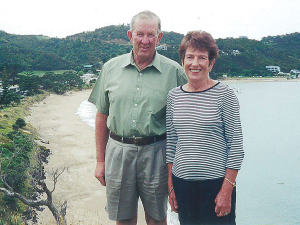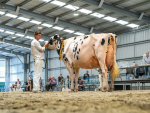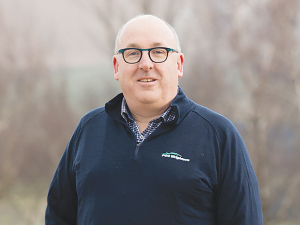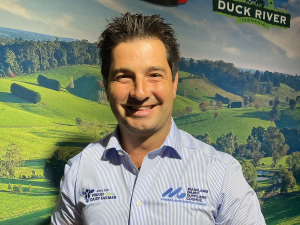The 63rd National Holstein Friesian Bull sale this week (September 18) will mark 54 consecutive years that retiring Kerepehi breeder Michael Lynch has entered and sold his bulls at the event.
Lynch, of Lyncrest Holstein Friesians, has been associated with sales conducted by PGG Wrightson and its predecessor company Wright Stephenson and Company Limited.
At the 1971 sale, Lyncrest Isar Rubin, a yearling bull of full Ariki breeding, sold as lot 44. However, research reveals that the first Lyncrest bull was sold at the Waikato Combined Breeders 53rd annual sale in 1968. The sale was run over three days and included four breeds of dairy cattle and conducted by four companies apart from Wright Stephenson. Lot 268, Lyncrest Governor Buster, sired by a Turepo bull from a daughter from one of Michael’s foundation cows, Seacrest OE Betsy VHC.
Michael joined the NZ Friesian Association back in 1959. His father, impressed by his enthusiasm for registered pedigrees, purchased some pedigree calves from the Arataki Stud at Ohaupo, and eight yearlings at a dispersal sale at Thames back in 1955. So began the Lyncrest Friesian stud.
From the beginning, AI was used by the NZ Dairy Board proven bull team. It was four years until the first bull registered carrying the Lyncrest connection was born in 1963 – Lyncrest Ideal, sired by Ruaview Ideal from a daughter of one of the Arataki cows. He was sold to the NZ Dairy Board and became a Premier Sire.
He was the first of many bulls that Michael entered for AI at both LIC and CRV Ambreed. At least 11 of the bulls have graduated to widespread usage in the national herd.
The first three were sons of LIC bulls and there were sons of imported North American semen. Only ones with high production ratings were used to blend with NZ bloodlines. A highlight for Michael was when Lyncrest Cascade Bob was selected with a group of NZ bulls to take part in the ‘Canz’ trial in Canada to compare the performance of bulls from the two countries.
Along with his success of selling bulls, he also held 27 annual sales on the farm, selling mainly in-calf heifers along with some cows, which met with strong demand from new and past buyers of Lyncrest cattle.
Michael served at different roles in NZ Holstein Friesian Association (NZHFA) – at club, branch and national levels. He was on the council for 16 years, served as president from 1995 to 1997 and was treasurer for three years.
He was a senior judge for 49 years and a classifier for 25 years. He was part of a 1982 trade delegation to China, South Korea and Indonesia looking at export opportunities. He was a delegate to the World Holstein Conference in Japan in 1996. He’s also an honorary life member of NZHFA.
Returning to the sale, originally held at Claudelands Show Grounds, there was a show prior to the sale. Lyncrest bulls on numerous occasions won Champion Bull or Reserve along with receiving the highest price of the sale.
At this week’s 2024 National Bull sale, to be held at the Te Awamutu saleyards, Michael will sell his last draft of nine Lyncrest bulls.
Following Michael’s retirement, the Lyncrest prefix will not be lost to the industry as his grandson Dylan and his partner Natasha have established Lyncrest Dairies Ltd with 70 of Michael’s cows. They are sharemilking in Southland.


















